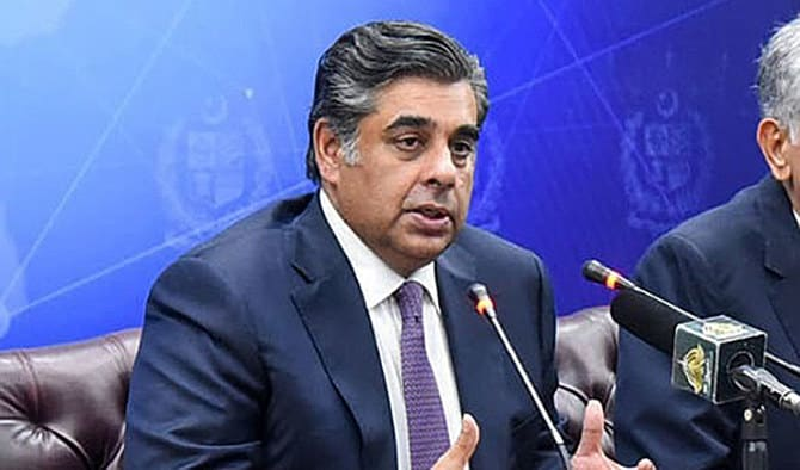Government Allocates Rs. 150 Billion Monthly to IPPs for Barely Any Electricity
Consumers Paid Rs. 150 Billion Monthly in Capacity Charges to IPPs During Q1 2024, Despite Low Production
During the first quarter of 2024, consumers were burdened with Rs. 150 billion per month in capacity charges paid to Independent Power Producers (IPPs). Despite these hefty payments, many of these plants operated at less than 10% of their full capacity.
Former Commerce Minister Dr. Gohar Ejaz highlighted this issue on July 20 by sharing data from the National Electric Power Regulatory Authority (NEPRA). He revealed that these payments, amounting to Rs. 150 billion per month, were distributed to various IPPs, with some plants running below 10% capacity. He pointed out that four power plants received Rs. 10 billion each per month without supplying any power.
READ MORE: PTA Initiates Tender for Advanced Firewalls to Enhance Internet Control in Pakistan
“This money, our hard-earned income, is being given to 40 families under the guise of capacity charges,” Dr. Ejaz tweeted. He urged the federal government to reclassify IPPs to ensure payments are made only for electricity produced, advocating for the adoption of merchant plants where payments are made solely for the power supplied. He emphasized the need for the government to procure electricity from the cheapest sources and to avoid conducting business at the expense of Pakistani citizens.
Dr. Ejaz called for NEPRA to include representation from all large consumers in its distribution and management to prevent further exploitation.
In a follow-up statement, Dr. Ejaz disclosed that due to “corrupt” IPP agreements, the government was purchasing electricity at exorbitant rates. He revealed that the government buys electricity at Rs. 750 per unit from certain power plants, while it purchases electricity from coal power plants at an average of Rs. 200 per unit and from wind and solar at above Rs. 50 per unit. Despite operating below 20% capacity, IPPs received Rs. 1.95 trillion in payments, with an additional Rs. 160 billion under verification.
| No. | IPP | Jan-24 CPP (Rs.) | Feb-24 CPP (Rs.) | Mar-24 CPP (Rs.) |
|---|---|---|---|---|
| 1 | WAPDA Hydel | 6,604,413,076 | 7,464,586,208 | 7,198,995,526 |
| 2 | Pakhtunkhwa Energy Development Organization (Malakand-l) | 78,869,552 | – | 122,038,812 |
| 3 | Laraib Energy Limited | 702,319,195 | 726,183,370 | 1,242,660,510 |
| 4 | Star Hydro Power Limited | 2,337,883,700 | 2,383,986,870 | 1,137,187,656 |
| 5 | Neelum Jhelum Hydropower Company (Pvt.) Ltd. | 180,830,638 | – | – |
| 6 | Mira Power Limited | 2,986,934,207 | 643,705,391 | 643,705,391 |
| 7 | Karot Power Company (Pvt.) Limited | 2,199,549,827 | 2,199,549,827 | 2,199,549,827 |
| 8 | Jamshoro Power Company Limited-(Genco-1) | 14,643,549 | 143,950,427 | 284,152,500 |
| 9 | Central Power Generation Company Limited-Genco-2) | (8,457,844) | 8,367,509 | (52,096,949) |
| 10 | Northern Power Generation Company Limited-(Genco-3) | 1,059,418,155 | 2,367,959,741 | 1,078,774,000 |
| 11 | Kot Addu Power Company Ltd. | – | – | 279,796,000 |
| 12 | The Hub Power Company Limited | 2,668,611,160 | 4,121,339,984 | 2,666,601,367 |
| 13 | Kohinoor Energy Ltd. | 207,513,313 | 207,513,313 | 207,513,313 |
| 14 | Lalpir Power (Private) Limited | 738,040,878 | 738,052,158 | 738,052,158 |
| 15 | Pak Gen Power Limited | 737,144,944 | 737,156,209 | 737,156,209 |
| 16 | Fauji Kabirwala Power Company Ltd. | 257,228,356 | 50,864,234 | 257,228,356 |
| 17 | Rousch Pak Power Ltd. | 647,594,919 | 370,281,700 | 813,536,972 |
| 18 | Saba Power Company (Pvt.) Ltd. | 276,820,529 | 276,820,529 | 276,820,529 |
| 19 | Uch Power Ltd. | 688,832,432 | 631,055,589 | 670,229,265 |
| 20 | Liberty Daharki Power Limited | 498,937,071 | 420,407,749 | 420,407,749 |
| 21 | PAEC Chashma Nuclear Power Plant. 1 | 1,259,027,325 | 1,278,452,367 | 1,474,751,842 |
| 22 | PAEC Chashma Nuclear Power Plant. II | 5,212,887,143 | 2,276,382,219 | 2,512,131,146 |
| 23 | PAEC Chashma Nuclear Power Plant. I | 4,023,353,454 | 3,658,273,727 | 3,972,325,069 |
| 24 | PAEC Chashma Nuclear Power Plant. IV | 3,993,894,252 | 3,725,738,665 | 3,549,048,331 |
| 25 | Karachi Nuclear Power Plant-Unit-2 | 4,011,065,768 | 19,977,874,262 | 16,819,284,250 |
| 26 | Karachi Nuclear Power Plant-Unit-3 | 7,701,692,264 | 7,574,637,585 | 8,142,091,325 |
| 27 | Tavanir Iran | – | – | 234,440,343 |
| 28 | Attock Gen Limited | 18,081,441 | (60,700,025) | 251,255,297 |
| 29 | Atlas Power Limited | 332,632,643 | (50,423,909) | 407,903,025 |
| 30 | Nishat Power Limited | 484,678,533 | 297,713,835 | 1,133,672,472 |
| 31 | Foundation Power Company Daharkl Ltd. | 210,142,479 | 358,608,238 | 425,230,756 |
| 32 | Orient Power Company (Private) Limited | 294,734,112 | 372,390,876 | 389,018,899 |
| 33 | Nishat Chunian Power Limited | 263,808,512 | 306,842,149 | 338,171,900 |
| 34 | Saif Power Limited | 211,075,619 | 213,405,891 | 290,878,795 |
| 35 | Engro Powergen Qadirpur Limited | 193,390,227 | 109,720,574 | 175,169,411 |
| 36 | Sapphire Electric Company Limited | 217,282,292 | 167,771,794 | 212,810,973 |
| 37 | Narowal Energy Limited | 337,129,692 | 701,960,094 | 446,193,472 |
| 38 | Liberty Power Tech Limited | 442,460,285 | 303,851,434 | 298,866,724 |
| 39 | Halmore Power Generation Company Limited | 452,019,104 | 372,321,497 | 390,041,244 |
| 40 | Uch-1 Power (Pvt.) Limited | 1,946,918,661 | 1,956,851,075 | 2,393,762,233 |
| 41 | JDW Sugar Mills Ltd. II | 134,483,723 | 30,436,736 | 35,446,866 |
| 42 | JDW Sugar Mills Ltd. | 162,600,817 | 115,579,369 | 129,546,777 |
| 43 | RYK Mills Limited | 7,420,953 | 102,337,070 | 157,919,446 |
| 44 | Chiniot Power Limited | 308,071,192 | 231,428,565 | 99,989,799 |
| 45 | Hamza Sugar Mills Limited | 82,352,319 | 90,610,275 | 78,192,803 |
| 46 | Almoiz Industries Limited | – | 90,121,336 | 22,687,221 |
| 47 | Chanar Energy Limited | (404,633) | 62,004,896 | 57,428,031 |
| 48 | China Power Hub Generation company (Pvt.) Ltd. | 12,135,475,471 | 10,016,108,670 | 10,838,648,165 |
| 49 | Engro Powergen Thar (Pvt) Limited | 5,366,166,523 | 4,822,480,682 | 5,180,794,895 |
| 50 | Thal Industries Corporation Ltd. | – | 113,371,509 | 262,771,134 |
| 51 | Quaid-e-Azam Thermal Power (Pvt) Limited | 2,672,204,704 | 2,714,511,827 | 6,134 |
Dr. Ejaz detailed that the government made capacity payments of Rs. 140 billion to one plant at a 15% load factor, Rs. 120 billion to another at a 17% load factor, and Rs. 100 billion to a third plant at a 22% load factor. This totals Rs. 370 billion for just three plants operating at a 15% load factor throughout the year.
He criticized the “capacity payment” clause in contracts, which allows for over-invoicing and results in substantial payments to IPPs without actual electricity production. Dr. Ejaz proposed eliminating capacity payments and advocated for procuring electricity solely from the cheapest suppliers.
Stressing the need for reform, Dr. Ejaz noted that 52% of the IPPs are government-owned and 28% are privately owned within Pakistan, meaning 80% are Pakistani-owned. He called on the public to rise against these exploitative agreements with 40 families. “Electricity being sold to us at Rs. 60 per unit is only because of these corrupt contracts, mismanagement, and incompetence. Please, all must rise against these agreements with 40 families to save your country,” he urged.




